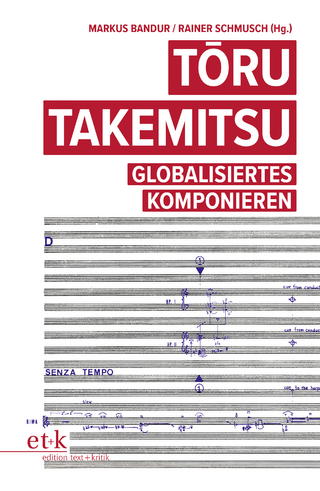
Flow
The Rhythmic Voice in Rap Music
Seiten
2019
Oxford University Press Inc (Verlag)
978-0-19-067041-2 (ISBN)
Oxford University Press Inc (Verlag)
978-0-19-067041-2 (ISBN)
Flow theorizes the rhythm of the rapping voice at the intersection of music, speech, and poetry. Author Mitchell Ohriner addresses pressing questions in theories of musical rhythm and meter through a combination of computational music analysis and humanistic close reading.
From its dynamic start at dance parties in the South Bronx in the late 1970s, hip hop and rap music have exploded into a dominant style of popular music in the United States and a force for activism and expression all over the world. So, too, has scholarship on hip hop and rap music grown. Yet much of this scholarship, employing methods drawn from sociology and literature, leaves unaddressed the expressive musical choices made by hip hop artists. Fundamental among these choices is the rhythm of the rapping voice, termed "flow."
Flow presents unique theoretical and analytical challenges. It is rhythmic in the same way other music is rhythmic, but also in the way speech and poetry are rhythmic. For the first time, Mitchell Ohriner's Flow: The Rhythmic Voice in Rap Music reconciles approaches to key concepts of rhythm, such as meter, periodicity, patterning, and accent, treated independently across other branches of scholarship. Ohriner theorizes flow by weaving between the methods of computational music analysis and humanistic close reading. Through the analysis of large collections of verses and individual tracks, the book addresses theories of rhythm, meter, and groove in the unique ecology of rap music. In a series of case studies in the second half, the work of Eminem clarifies how flow can relate to text, the work of Black Thought of The Roots clarifies how flow can relate to other instrumental streams, and the work of Talib Kweli clarifies how flow can relate to rap's persistent meter. While Ohriner focuses on rap music throughout the book, the methods he introduces will be useful for other musical genres that feature the voice freely interacting with a more rigid metric framework.
From its dynamic start at dance parties in the South Bronx in the late 1970s, hip hop and rap music have exploded into a dominant style of popular music in the United States and a force for activism and expression all over the world. So, too, has scholarship on hip hop and rap music grown. Yet much of this scholarship, employing methods drawn from sociology and literature, leaves unaddressed the expressive musical choices made by hip hop artists. Fundamental among these choices is the rhythm of the rapping voice, termed "flow."
Flow presents unique theoretical and analytical challenges. It is rhythmic in the same way other music is rhythmic, but also in the way speech and poetry are rhythmic. For the first time, Mitchell Ohriner's Flow: The Rhythmic Voice in Rap Music reconciles approaches to key concepts of rhythm, such as meter, periodicity, patterning, and accent, treated independently across other branches of scholarship. Ohriner theorizes flow by weaving between the methods of computational music analysis and humanistic close reading. Through the analysis of large collections of verses and individual tracks, the book addresses theories of rhythm, meter, and groove in the unique ecology of rap music. In a series of case studies in the second half, the work of Eminem clarifies how flow can relate to text, the work of Black Thought of The Roots clarifies how flow can relate to other instrumental streams, and the work of Talib Kweli clarifies how flow can relate to rap's persistent meter. While Ohriner focuses on rap music throughout the book, the methods he introduces will be useful for other musical genres that feature the voice freely interacting with a more rigid metric framework.
Mitchell Ohriner has earned degrees in music composition and music theory from the Universities of Colorado and Indiana and taught music theory at Washington University in St. Louis, Shenandoah University in Winchester, VA, and the University of Denver. His work on rap music, rhythm, expressive timing, and computational music analysis appears in journals, conference proceedings, and edited volumes. He lives in Denver with his wife and two sons.
| Erscheinungsdatum | 20.08.2019 |
|---|---|
| Reihe/Serie | Oxford Studies in Music Theory |
| Verlagsort | New York |
| Sprache | englisch |
| Maße | 155 x 236 mm |
| Gewicht | 567 g |
| Themenwelt | Kunst / Musik / Theater ► Musik ► Musiktheorie / Musiklehre |
| ISBN-10 | 0-19-067041-X / 019067041X |
| ISBN-13 | 978-0-19-067041-2 / 9780190670412 |
| Zustand | Neuware |
| Informationen gemäß Produktsicherheitsverordnung (GPSR) | |
| Haben Sie eine Frage zum Produkt? |
Mehr entdecken
aus dem Bereich
aus dem Bereich
Grundbegriffe, Harmonik, Formen, Instrumente
Buch | Softcover (2021)
Philipp Reclam (Verlag)
7,80 €
globalisiertes Komponieren
Buch | Softcover (2023)
edition text + kritik (Verlag)
49,00 €


